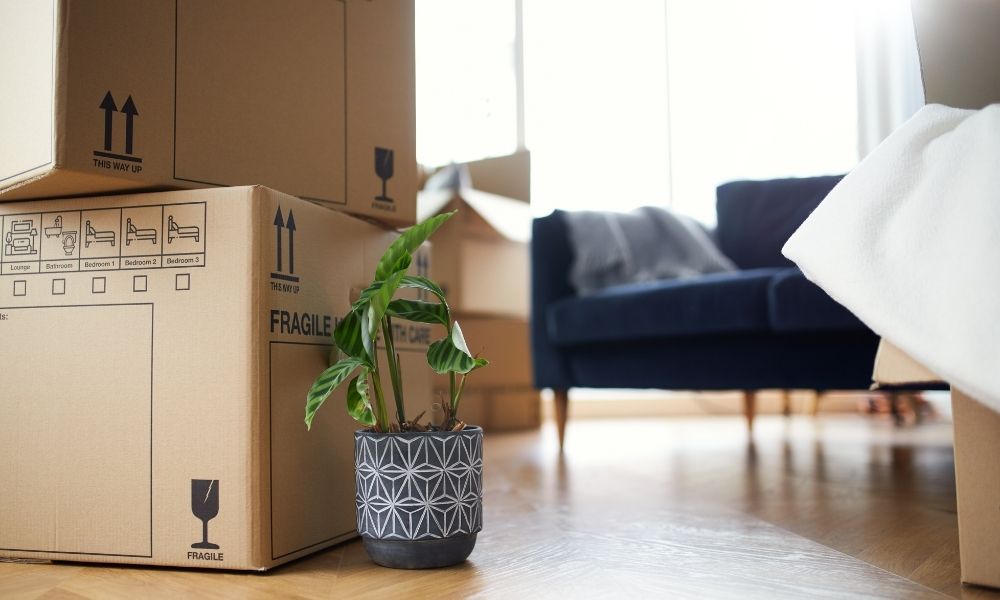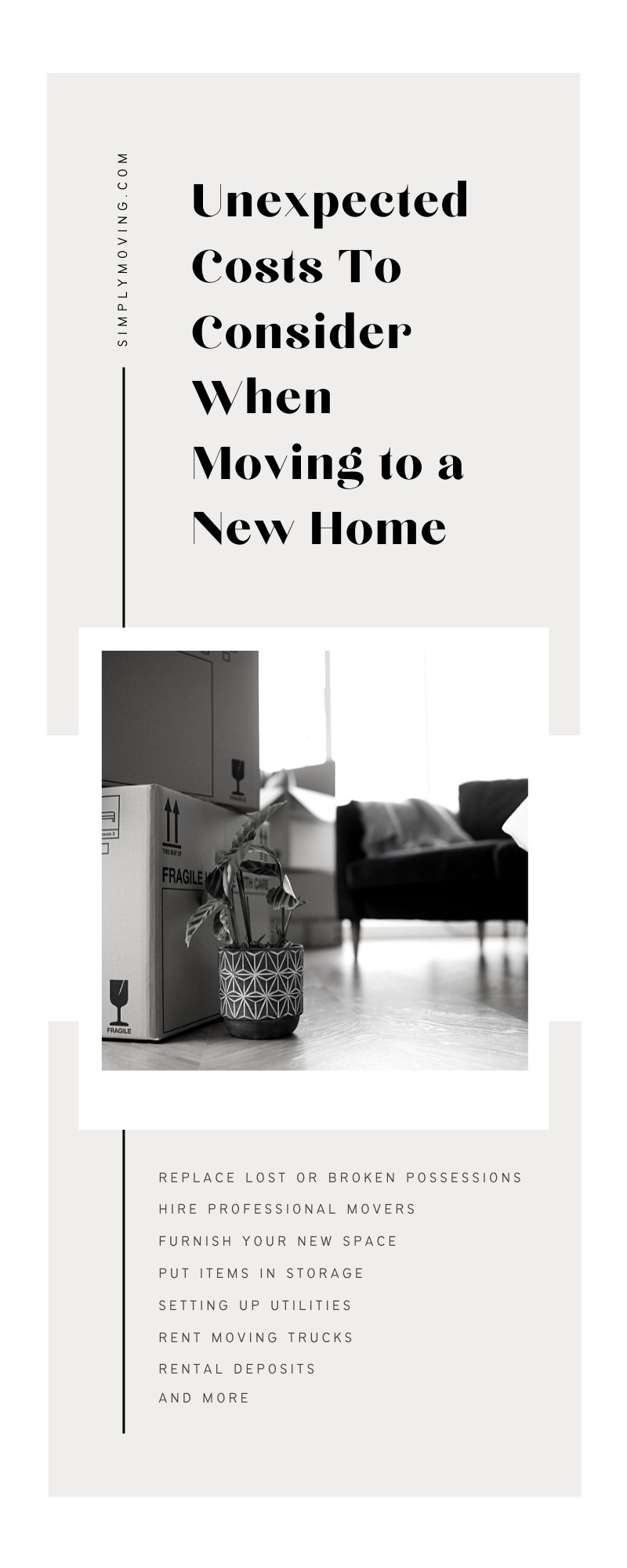Relocating to a new state or town comes with mixed emotions because of the challenges it brings. One main cause of anxiety is the unexpected costs to consider when moving to a new home. Try as you might to stay within budget, you’re likely to run into hidden expenses that send you over the edge. Be aware of them so that you aren’t surprised.
Moving Supplies
Don’t even think about trying to fit all your items in your suitcases and backpacks. Trash bags aren’t a solution, either! You’ll need boxes, tape, and bubble wrap to secure your items and get them out of your home. Don’t forget a good permanent marker to label your boxes.
Pro Tip: Buy more supplies than you think you’ll need. It’s better to have too many boxes than to try running to the store in the middle of packing.
Hire Professional Movers
One of the most expensive parts of moving is getting your items from point A to point B. Most people hire movers because the task is too difficult to do alone. Plus, it’s risky to trust your friends to move your expensive TVs and furniture. However, movers add a fee for distance, so if you’re moving to a new city, you may pay a lot of money to relocate.
Pro Tip: Be ready for surcharges if you have heavy items or stairs. Movers charge by how much time it takes them to move your stuff.
Rent Moving Trucks
It may seem less expensive to rent a moving truck, but the price can rise depending on how long you need it. Most companies charge a flat rate that runs between $30 and $40 per day, depending on the size of the truck. Make sure you rent a vehicle that you’re comfortable driving and fits where you need it.
Professional Cleaning Fees
If you’re moving out of a rented space, you may need to clean it to get your deposit back. Hiring professional cleaners is one way to ensure you don’t lose out on a single dime. Work with cleaners who can take care of toilets, ovens, and fridges that you may not have cleaned in a while.
Put Items in Storage
If you’re downsizing, you may need to store some items when you move. The price of a storage space depends on its size and quality. You pay for storage by the month. If you’re storing valuable items, keep them in waterproof containers, and try to request storage that doesn’t get direct sun.
Traveling To Your New Home
Depending on how far you move, you may incur expenses between houses. For instance, if you move across the country, you must travel to your new home. Decide ahead of time what you’ll do to make it to your new place safely. Hidden expenses to plan for when moving include:
- Gas
- Hotel
- Food
- Airfare
Setting up Utilities
Utility fees are an expense people often forget when moving to a new home. Many different services are necessary these days to make your home comfortable, and some require deposits or new boxes and other equipment to run them. Make a list of what you’ll need at your new place so that you don’t leave out an essential utility. Common things you may need to set up at your home include:
- Wi-Fi
- Water
- Gas
- Electricity
- Cable or satellite
- A security system
Rental Deposits
Though not all rental properties require one, most apartments ask for a deposit when you sign the lease. Typically, your deposit is the same as your first month’s rent. The deposit secures your place in the building and protects the manager or owner if they need to pay for repairs.
Pro Tip: If you want to receive your deposit back when you move out (and you do), keep your rental in good shape. Check your lease for any specific stipulations that might reduce your deposit amount if you break them.
Move-in Fees
Some large complexes may charge a fee for you to use their freight elevators. At the same time, they may require you to use the freight elevator to move your stuff. Inquire with your building about when you can move in and what fees they’ll charge you. They may charge you more if you break the rules.
Restock Your Fridge
One of the best things about moving is purging. If you’re moving a long distance, especially, you should get rid of food that won’t last the drive. Once you move into your new place, replenish your fridge and freezer with new, fresh food. Maybe you’ll have better equipment in your new place that allows for superior organization.
Pro Tip: Don’t hesitate to throw away or donate dry and non-perishable items you know you’ll never use. Never pack items you know you won’t use in your new place.
Replace Lost or Broken Possessions
Inevitably, you’ll lose or break something during your move. Even if you don’t replace the items right away, you’ll eventually want a new lamp, mug, or mirror. Though it’s difficult to replace items you love, be ready for things to go wrong during your move. The best way to prevent this common mishap is to make a list of your items and wrap them securely when you pack them.
Furnish Your New Space
It may seem like you have plenty of items to fill your new home, but once you move in, you might change your mind. Whether you relocate to a larger or smaller space, a change of pace may inspire you to remodel and revamp your decor. The type of artwork, drapes, and throw pillows you kept in your previous home may not suit your new apartment and lifestyle. On the other hand, you may find you have new space you want to fill. Shopping for larger furniture, wall hangings, and rugs comes with a higher price tag.
Becoming familiar with the unexpected costs to consider when moving to a new home is the best way to prepare for a move. Leave room in your budget for hidden expenses you can’t plan for to ensure you can afford your relocation without breaking the bank.
Avoid paying too much for your biggest expense when you choose the best NYC residential movers. Contact Simply Moving to work with a team of friendly movers and drivers who will make your moving day stress-free.


